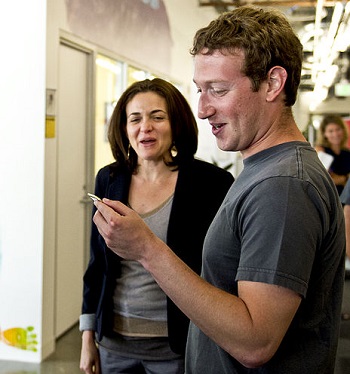Nielsen research results show smartphone ads are getting the job done and send the message to the right people.
Results from a recent Nielsen research study are supporting the use of mobile marketing campaigns. As it turns out, the data indicates that these ads are highly effective in reaching targeted consumers.
In fact, some forms of mobile marketing ads are as effective – if not more so – than desktop advertising.
As this type of insight regarding mobile marketing campaigns is produced by more research firms, it is expected that spending on this advertising channel will keep rising. While some have said that this will be to the detriment of desktop ads, others have predicted that it’s more likely to impact more traditional methods of advertising – such as TV and print – before it reaches desktop.
Nielsen’s study on the effectiveness of this method analyzed data from 40,000 mobile marketing campaigns.
 Those mobile advertising campaigns occurred at any time between April 2016 and June 2016. They were presented over a spectrum of mobile apps, websites and digital services. What Nielsen found was that this technique allowed the ads to reach 60 percent of their targeted consumers. That represents an improvement of 29 percent when compared to the same time during 2015.
Those mobile advertising campaigns occurred at any time between April 2016 and June 2016. They were presented over a spectrum of mobile apps, websites and digital services. What Nielsen found was that this technique allowed the ads to reach 60 percent of their targeted consumers. That represents an improvement of 29 percent when compared to the same time during 2015.
The study went on to reveal that the effectiveness of mobile ad campaigns has a greater effectiveness for reaching:
• A more targeted audience – The campaigns targeting consumers aged 18 to 34 years successfully reached them 63 percent of the time over mobile. Comparatively, the rate over desktop was 53 percent. The Nielsen report suggested that this was due to the personal nature of mobile devices and the shared nature of computers.
• Women – Campaigns targeting women aged 18 to 49 years old were successful in doing so 53 percent of the time over mobile. Over desktop, that figure was 45 percent.
As shoppers use their smartphones to an increasing degree, mobile marketing campaigns are able to better reach their audiences. This allows for the placement of ads that are more relevant to consumers and will likely increase the use of this advertising channel, said Nielsen.
The creator of the social network is working hard to fight growing accusations of its role in the election results.
Amidst a rapidly rising body of criticism against Facebook social media marketing, Mark Zuckerberg insists the network isn’t to blame for Donald Trump’s victory. Critics claim that viral fake pro-Trump news stories on Facebook led to the Republican’s election win.
Zuckerberg has responded quite forcefully, saying that he feels the accusation is a “pretty crazy idea.”
Speaking onstage at a recent conference, Zuckerberg addressed the thought that Facebook social media marketing contributed to Donald Trump’s election. “Personally,” he said, “I think the idea that fake news on Facebook, which is a very small amount of the content, influenced the election in any way—I think is a pretty crazy idea. Voters make decisions based on their lived experience.”
Zuckerberg also went on to ask “Why would you think there would be fake news on one side and not the other?”
That has not assuaged the critics insisting Facebook social media marketing doesn’t properly filter fake news.
 Many claim that as the largest social media platform worldwide, viral hoax news posts shared there may have helped Trump to win. The reason, say many, is that Facebook either refuses or is not able to contain the spread of those fake news articles.
Many claim that as the largest social media platform worldwide, viral hoax news posts shared there may have helped Trump to win. The reason, say many, is that Facebook either refuses or is not able to contain the spread of those fake news articles.
Moreover, BuzzFeed News conducted an investigation earlier in 2016 which examined the most right-wing extremely partisan publications published by Facebook pages. They determined that 38 percent of the news shared by those sources was misinformation. That said, when examining the same type of page on the left-wing side, misinformation occurred considerably less: 20 percent of the time.
Those figures may not sound too problematic, but BuzzFeed News also identified another trend with this form of Facebook social media marketing. The stories with the lowest accuracy were the ones BuzzFeed found to generate the largest number of shares and reactions (such as Likes). Inaccurate stories on Facebook pages greatly outperformed publications shared on Facebook pages from more mainstream political news sites. Over the last few months, a rash of hoax news sites were created in order to take advantage of this trend.
 Those mobile advertising campaigns occurred at any time between April 2016 and June 2016. They were presented over a spectrum of mobile apps, websites and digital services. What Nielsen found was that this technique allowed the ads to reach 60 percent of their targeted consumers. That represents an improvement of 29 percent when compared to the same time during 2015.
Those mobile advertising campaigns occurred at any time between April 2016 and June 2016. They were presented over a spectrum of mobile apps, websites and digital services. What Nielsen found was that this technique allowed the ads to reach 60 percent of their targeted consumers. That represents an improvement of 29 percent when compared to the same time during 2015.
 Many claim that as the
Many claim that as the 